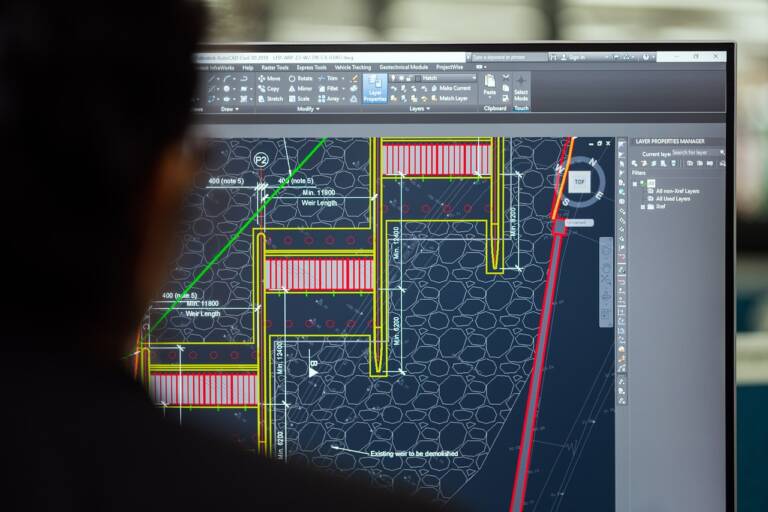The decision to step into treatment for substance use can feel like standing at the edge of an unfamiliar road, unsure what lies ahead. You’re making a choice that carries weight for your health, your relationships, and your future. With so many options available, the challenge isn’t whether to get help, but how to find a place that feels trustworthy and effective. The right rehab doesn’t just hand you tools, it surrounds you with a setting that makes using those tools possible. Knowing what to look for before you commit can take away some of the anxiety and give you the confidence that you’re entering a space built to support real change.
Evidence-Based Care Matters
One of the most reliable signs of a strong rehab program is its commitment to evidence-based practices. This isn’t jargon, it’s about methods that have been studied, tested, and proven effective. Cognitive behavioral therapy, motivational interviewing, and medication-assisted treatment are all backed by years of data showing they help people recover. If a facility leans heavily on untested or vague approaches without grounding them in science, it can leave you frustrated. The best programs combine clinical expertise with compassionate care, balancing the technical with the personal so that treatment feels human and effective at the same time. When you walk into a center, ask how they integrate these approaches and how they tailor them to each person. If they can explain clearly, it’s a good sign they know what they’re doing.
Personalization Over One-Size-Fits-All
Every individual who enters treatment brings a different set of circumstances. Some are parents trying to balance childcare, others may be juggling work responsibilities, while many are coping with long histories of trauma or mental health struggles. A rehab that tries to push everyone through the same rigid schedule isn’t likely to give lasting results. The stronger programs offer individualized care plans that acknowledge the complexities of life outside treatment. They listen, they adjust, and they respect that your recovery won’t look exactly like the next person’s. Group therapy may help some thrive, while others need more one-on-one time with a therapist. Flexibility shows respect for the realities people live with. When you’re evaluating a program, pay attention to how much they emphasize personal assessments and tailored planning. That effort can make the difference between treatment that feels generic and treatment that truly connects.
Safe Medical Support When It’s Needed
For many, recovery begins with detox, and it’s one of the most vulnerable stages of the process. If you’re considering a program, ask what kind of medical support they offer during this phase. Professional oversight during meth detox or withdrawal from alcohol, opioids, or benzodiazepines can protect you from dangerous complications. Programs that cut corners here can put people at risk. On the other hand, facilities that offer around-the-clock monitoring, access to licensed medical staff, and medication support help stabilize the early days and make the transition into therapy smoother. Even if you don’t need detox, knowing a center takes medical safety seriously says a lot about how much they value the people in their care.
The Value of Location and Community
Where you go for treatment can shape the experience in unexpected ways. Some people find healing when they’re close to family support, others benefit from creating distance between themselves and old habits. Looking at options from drug rehab centers in Indiana, Virginia or anywhere in between, it becomes clear that the environment plays an important role. Rural programs might provide quiet and privacy, while urban centers may offer broader access to specialists and outpatient follow-up. What matters most is whether the location makes you feel supported rather than isolated. Consider not just the facility itself but the surrounding community, since recovery doesn’t stop at the exit door. Aftercare options, peer support groups, and local resources all add layers of reinforcement that make the initial investment in rehab last longer.
Staff Who Care Enough to Stay Involved
Credentials matter, but so does compassion. A program may have polished facilities and well-written pamphlets, but if the staff turnover is high or the counselors seem burned out, it can undermine everything else. People recover best when they feel a consistent, caring presence guiding them. When researching or visiting a center, pay attention to how staff interact not just with you but with each other. Do they know their patients well? Do they seem engaged, or are they running on autopilot? The intangible sense of being cared for often becomes one of the strongest anchors during treatment. It builds trust, and trust makes the difficult work of change possible.Aftercare That Extends the Net
Graduating from a program isn’t the finish line, it’s the start of applying what you’ve learned to everyday life. The most effective rehabs understand this and put as much effort into aftercare planning as they do into the main program. This might mean connecting you to outpatient therapy, alumni groups, sober living environments, or local community resources. Without that bridge, people can feel like they’re stepping from a structured environment back into chaos, and the gap can be overwhelming. Ask how a center handles discharge planning and follow-up. The more thorough they are, the better equipped you’ll be to maintain the progress you’ve made.
Choosing a drug rehab is not about picking the flashiest facility or the one with the most persuasive marketing. It’s about finding a place where evidence-based care, personalization, safety, community, and compassion intersect. The right program respects that recovery is both a medical process and a deeply human one, requiring structure without rigidity and support without judgment. A thoughtful choice now can shape not just the next few weeks, but the trajectory of your future. Trust that the effort you put into choosing wisely is worth it, because a well-matched rehab isn’t just treatment, it’s the foundation for a life rebuilt with strength and clarity.






